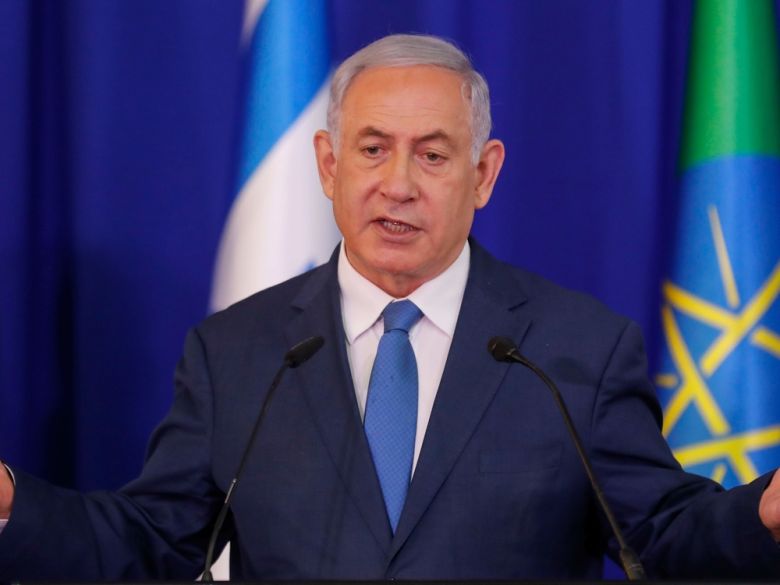JERUSALEM – Prime Minister Benjamin Netanyahu on Sunday doubled down on a campaign pledge to annex Jewish settlements in the occupied West Bank, reaching out to fragmented right-wing voters as the country heads into the final phase of an unprecedented repeat general election in 17 days.
Netanyahu, who according to pollsters is running neck and neck with his main political rival, is seeking to draw support from the nationalist settler community so that he can pull ahead in a lackluster election race that he cannot afford to lose.
With an indictment looming in three criminal cases centering on fraud, bribery and breach of trust – pending a hearing – the Israeli leader is determined to hold on to his privileged seat for as long as possible.
Speaking Sunday at the opening of the new school year in the settlement of Elkana, Netanyahu pledged that no more Jewish communities in the areas Palestinians want for their future nation state would be dismantled.
He also promised to extend Israeli sovereignty to all Jewish settlements, which have remained under Israeli military rule since the country’s victory in the 1967 Israeli-Arab war. Today more than 450,000 Israeli citizens live in settlements deemed illegal by most of the international community.
With the help of God we will apply Jewish sovereignty to all Jewish communities, as part of the Land of Israel, and as part of the State of Israel
“There will be no more displacements, and with the help of God we will apply Jewish sovereignty to all Jewish communities, as part of the Land of Israel, and as part of the State of Israel,” Netanyahu said.
Rachel Broyde, Netanyahu’s foreign press spokesperson, said that the prime minister did not mean the application of Jewish religious law, but rather “Israeli national law.”
“Israel is the nation-state of the Jewish people, and the prime minister hopes to apply Israeli sovereignty to Jewish communities in Judea and Samaria,” she said, using the Hebrew terms for the West Bank.
Netanyahu’s words immediately drew rebukes from Palestinian leaders, who have witnessed an increase in such statements from Israel as the U.S. administration under President Donald Trump has refrained from criticizing the Israeli government on the issue of settlement expansion as it had in the past.
Diplomatic ties between the Palestinians and the United States have been strained since Trump recognized Jerusalem as Israel’s capital and moved the embassy there from Tel Aviv in May 2018.
“Those who claim concern after every Israeli settlement announcement should face reality: Israel’s PM is announcing further annexation of occupied territory,” Saeb Erekat, secretary general of the Palestine Liberation Organization and former peace negotiator, wrote on Twitter. “Enough impunity: There’s an international responsibility to impose sanctions on Israel after decades of systematic crimes.”
For most of his time as Israel’s leader, Netanyahu has refrained from making outright statements about annexation of the West Bank, despite pressure from those who live in the settlements, a fairly small but politically powerful sector of society.
Similar comments during the previous round of elections in April were seen by many as another empty campaign promise. The April election ended in a stalemate three months ago when Netanyahu, whose ruling Likud party won the largest share of the votes, failed to pull together a stable coalition.
Israelis will now recast their votes on Sept. 17, although recent polls do not suggest any radical changes in the results and indicate Netanyahu may still struggle to achieve a 61-seat majority in Israel’s 120-seat Knesset.
Eugene Kontorovich, director of International Law at the Jerusalem-based Kohelet Policy Forum, said “it was far from clear if such a promise will materialize.”
“If the prime minister wanted to, he could take this action right now with a mere cabinet decision. It does not require Knesset legislation,” said Kontorovich. “So it is unclear what the value of a mere speech is.”
Kontorovich said that Netanyahu’s comments focused on applying Israeli sovereignty over Israeli communities in the West Bank only. “Nothing in his comments rules out a Palestinian state or undermines Palestinian self-determination,” he said.

























